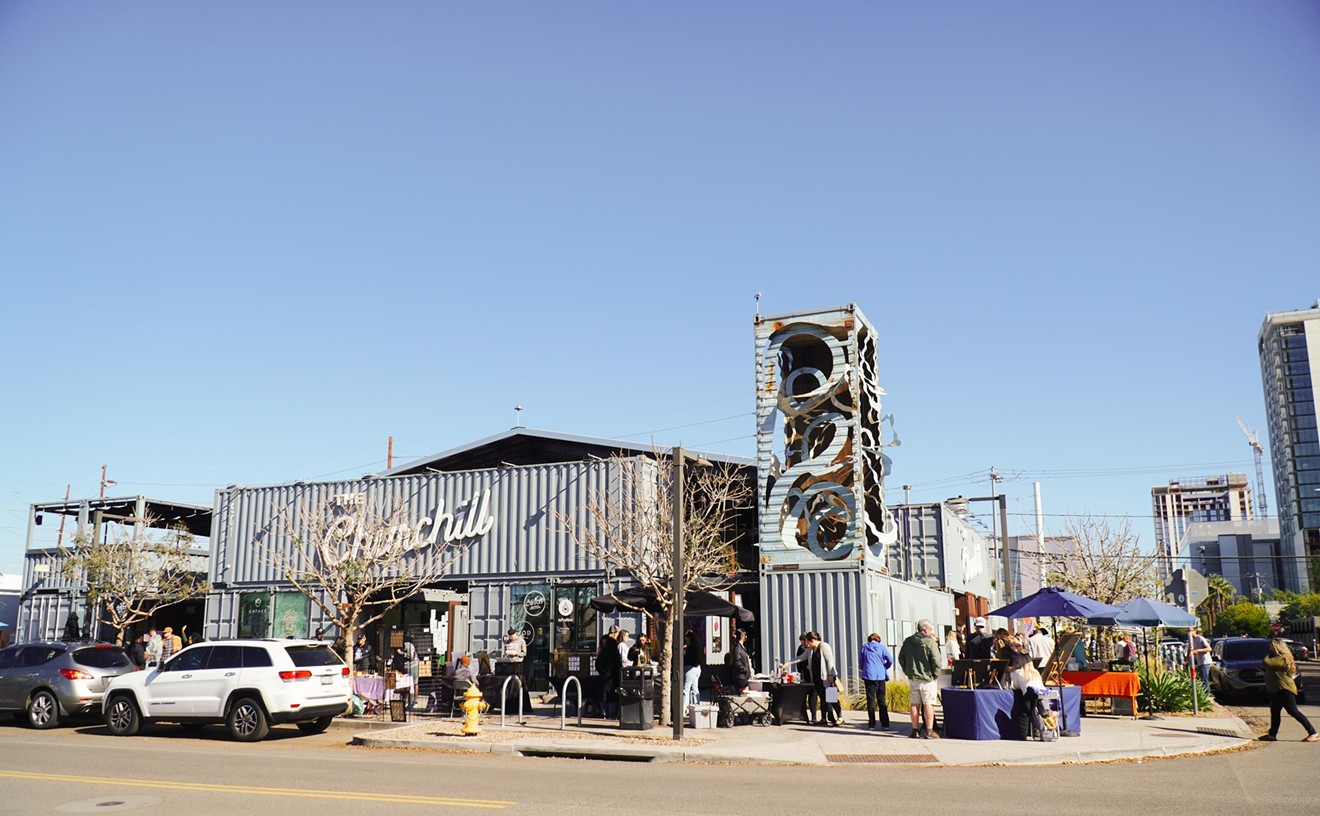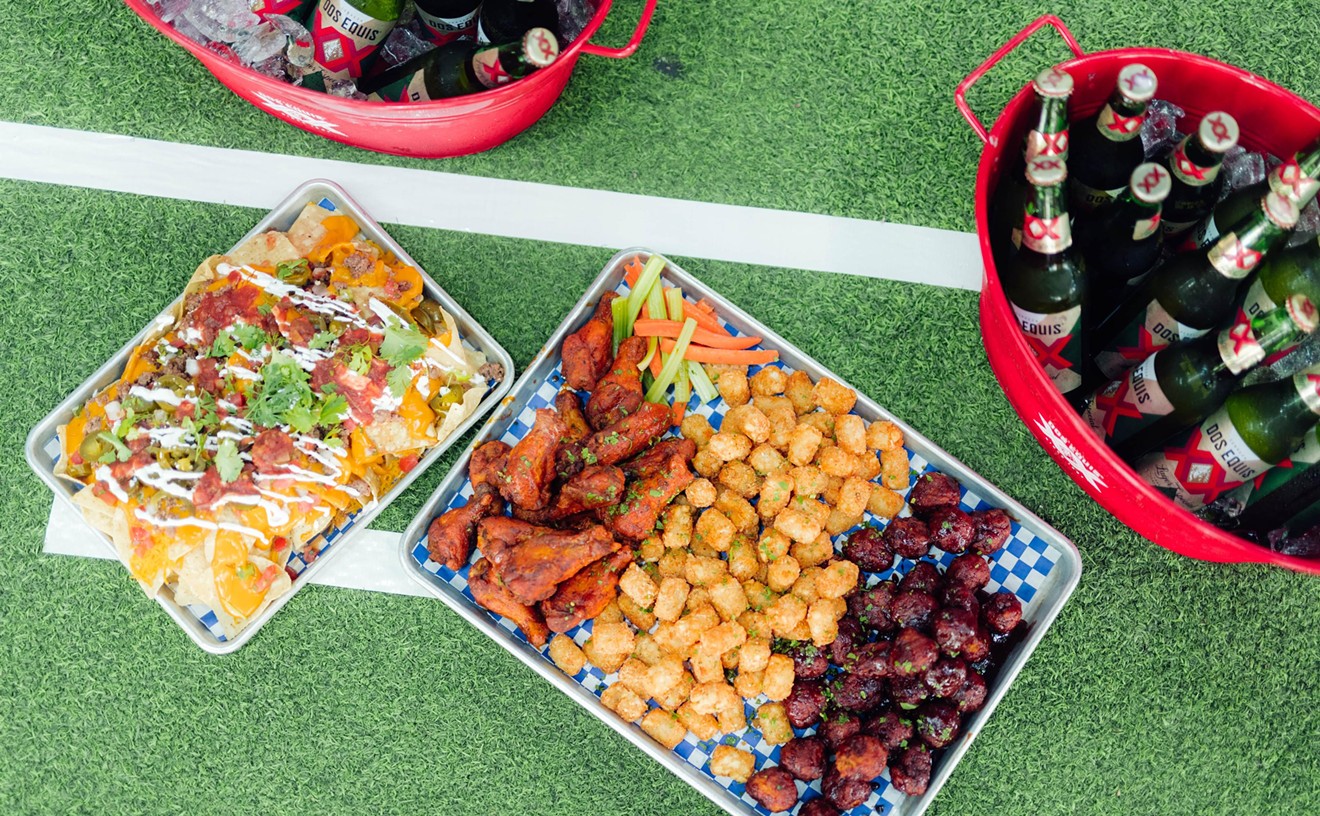Ethiopian food is among the most unique in the world. Platters are shared on a round plate, and each mixture is poured onto a bed of
spongy injera bread. Instead of forks, diners tear off pieces of injera and wipe the meat and vegetables off the platter, using the sour pancake as an edible utensil. Many dishes are complex and take a lot of time to prepare.
You can find this cuisine at Gojo Ethiopian Restaurant in Central Phoenix, which Kelen Firdawoke Demeke and her husband opened three years ago. The Amharic name translates to “hut” or “house,” and the operation is small. Demeke runs the kitchen every single day, cooking stews, marinating meat, and preparing injera bread, and on Monday afternoons, the family hosts a coffee ceremony, which involves washing, roasting, and crushing coffee beans by hand.
It's been many years since Demeke and her husband fled Ethiopia. After living as refugees in Yemen, the couple was invited to live in the United States, where they now raise two sons and run the restaurant. Demeke speaks only basic English, but Gojo server Samrawit Zegta offered to interpret.
How did you start cooking?
Ever since I was a kid, I would watch my mother cook. When people get together, it’s a kind of family event. I always wanted to own my own restaurant because I love cooking and seeing other people eat. When I got the opportunity, I jumped right into it.
How has the restaurant changed since you first opened?
When I started, it was a little hard. But once people started coming here, word got around. Ethiopians are very social, so if one person likes something, everyone will hear about it. There are some other Ethiopian restaurants here as well, so people started to become more familiar with Ethiopian restaurants, and it helped our progress.
One of the unusual aspects of Ethiopian cuisine is that people share the same plate. What else is unique to this tradition?
One thing I take pride in is that Ethiopian food isn’t easy to cook. I put a lot of work into it. You have to get the spices right, it has to be mixed well, and you have to cook it thoroughly, so it doesn’t burn. It can take up to three days [for some dishes]. I love that it takes a long time to make, and people enjoy it.
Do people visit Gojo to try Ethiopian for the first time? What is their reaction?
There are a lot of people who come out here for the first time, and they say, “I’ve never tried Ethiopian food before.” They love it, in the end, and they end up taking some home, bringing some of their friends, or they have parties here. For that first experience, they didn’t expect it to be so flavorful, so they love that part a lot. Some people aren’t used to the sourness of injera bread, and it takes them a few times to get used to it.
Ethiopian often require special ingredients, like teff grains and berbere spices. How readily available are they?
At first, before the food got popular, it was difficult to find ingredients. It would have to be sent from back home. But there are now some factories in Washington that do make some teff, so it is easier to distribute throughout the United States. They figured it would be easier to make it here, so they could make a profit and also help people produce the ingredients that they need. It’s gotten easier over time.
Is there a platter that particularly reminds you of home?
Back home, it’s not just the food — it’s the togetherness that counts. Whenever you cook food, or there’s a specific holiday, it’s about people getting together. For me, when I see people get together and talk, drink some coffee do the ceremony and everything, those are the things that remind me of home.
[
{
"name": "Air - MediumRectangle - Inline Content - Mobile Display Size",
"component": "18478561",
"insertPoint": "2",
"requiredCountToDisplay": "2"
},{
"name": "Editor Picks",
"component": "16759093",
"insertPoint": "4",
"requiredCountToDisplay": "1"
},{
"name": "Inline Links",
"component": "17980324",
"insertPoint": "8th",
"startingPoint": 8,
"requiredCountToDisplay": "7",
"maxInsertions": 25
},{
"name": "Air - MediumRectangle - Combo - Inline Content",
"component": "16759092",
"insertPoint": "8th",
"startingPoint": 8,
"requiredCountToDisplay": "7",
"maxInsertions": 25
},{
"name": "Inline Links",
"component": "17980324",
"insertPoint": "8th",
"startingPoint": 12,
"requiredCountToDisplay": "11",
"maxInsertions": 24
},{
"name": "Air - Leaderboard Tower - Combo - Inline Content",
"component": "16759094",
"insertPoint": "8th",
"startingPoint": 12,
"requiredCountToDisplay": "11",
"maxInsertions": 24
}
]










